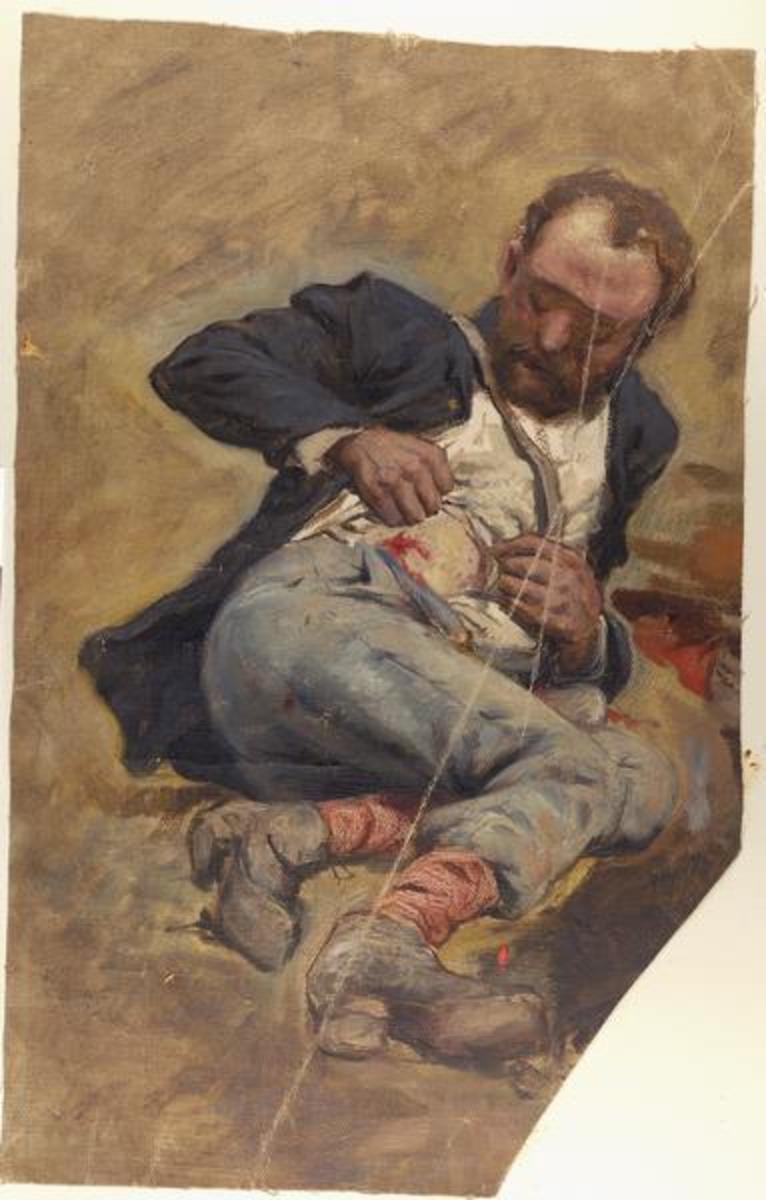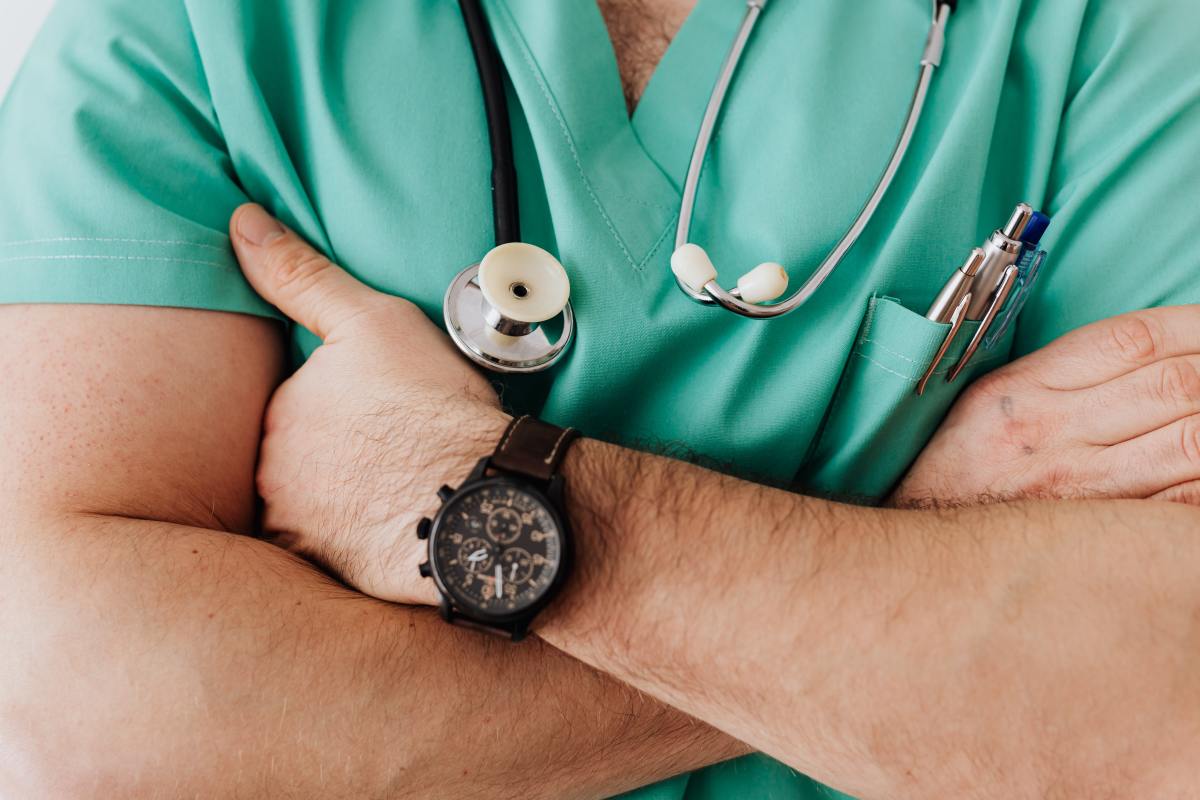Unnecessary Medical Testing
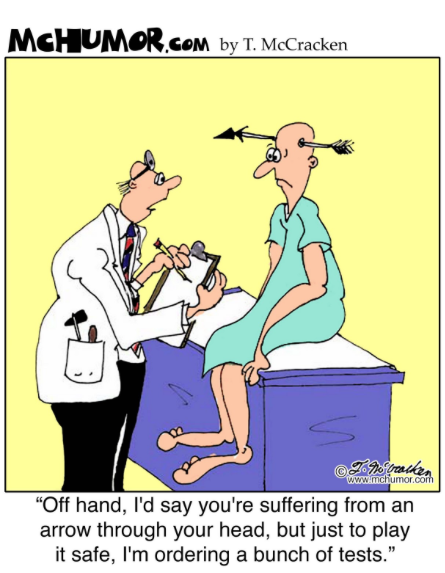
Introduction
My public speaking club teaches that it is always good to begin a presentation with a joke or relevant anecdote. I think this one has pertinence.
A man loved his pet parrot named Percy. Sadly, the time came, as these times always come, when the beloved bird died. Suffering from a powerful grief that clouded his judgement, the man took the dead bird to a local veterinarian.
"Doctor, please examine my parrot. I think he's dead, but I need to make sure."
The vet unwraps the deceased (wide eyed and stiff at this point) and says,
"Sir, your parrot is indeed passed. I'm very sorry."
Not satisfied, the man asks,
"Isn't there some test you can do just to make sure?"
Hoping to pacify the grieving pet owner the vet nods politely. He then places the bird on the floor, walks over to a side door, and opens it. A cat saunters in, walks over to the bird and begins sniffing it from tail feathers to beak. After the examination the cat looks up at the vet, shakes his head and walks back through the door through which he came.
"The cat has indicated to me that your bird has expired."
Still not satisfied, the owner says,
"Well isn't there something else you can do? Another test perhaps? I really need to know FOR SURE."
Again the vet nods politely and walks to another door. He opens it and out strides a beautiful black lab. The dog walks over to the remains, takes in several whiffs, then, with doleful, sad eyes looks at the vet, and shakes his head.
"Sir," says the vet, "We've done all we can do. You'll have to accept the fact that Percy is gone."
Tearfully, the man agrees and leaves.
One week later he gets a bill from the vet for $2,000. Outraged, he calls the vet and shouts,
"What is the meaning of this bill? All you did was tell me my bird was dead, how can you possibly justify such a large amount?"
"Well sir, it was the tests we ran."
"Tests? What tests are you talking about?"
"I'm talking about the cat scan and lab report."
It's a cute joke, but like all jokes, it bears a measure of truth. As you will see, the healthcare industry has become overly zealous when it comes to prescribing medical testing.
What I am NOT Saying
I am not saying you should never have medical testing. I'm not even trying to discourage medical testing. What I do hope to accomplish in this article, is to put the idea in your mind that you DON'T have to have each and every test that is suggested to you.
Tip #1- Know how to Educate Yourself
First, I would like to share one do and one don't I've picked up in over 25 years of experience in the healthcare field.
Do- read up on whatever ailment from which you may be suffering. It is never a bad idea to educate yourself. The way to go about "reading up" is important. I recommend (as I have in a previous article) that, as a potential patient, you should consult a friend or family member that is in the healthcare field; someone you trust. Everyone has a friend or relative in the medical field; a nurse, surg tech, or physician. If they don't have the information, chances are, they will have a colleague with whom they can consult. Solicit their opinion on what you should read first. Often times people begin with an internet search only to gain a greater sense of fear than they had before they did the search. The experts in the field will shepherd you toward the best literature and online information for you.
Don't- think that reading up on something makes you an expert, especially if you've been reading academics rather than clinicians. I was recently working with a colon/rectal surgeon. A patient came in for a consultation regarding hemorrhoids. For those that may not know, there are 2 kinds of hemorrhoids-
- internal
- external
The patient's wife had read extensively about internal hemorrhoids. She did most of the talking and explained to the surgeon that she was well aware of how her husband's problem should be dealt with. She knew all about GIA stapling as well as conventional excisional methods. The surgeon listened patiently. After a 5-10 minute conversation her husband (the patient) was placed in the Kraske position on the examination table. Upon examination it was discovered that the patient actually had external hemorrhoids. Alas, her study had been in vain. The surgeon was very tolerant (not all are) and explained the difference between the two conditions and how treatment would vary. The problem in this case wasn't that the surgeon had to give a more extensive explanation; the difficulty was that he had to essentially help the patient and his wife "unlearn" all they had learned in their personal research. If you're going to do the research, you really have to know how to go about it as discussed in the above "do."
Is all this Really Necessary?
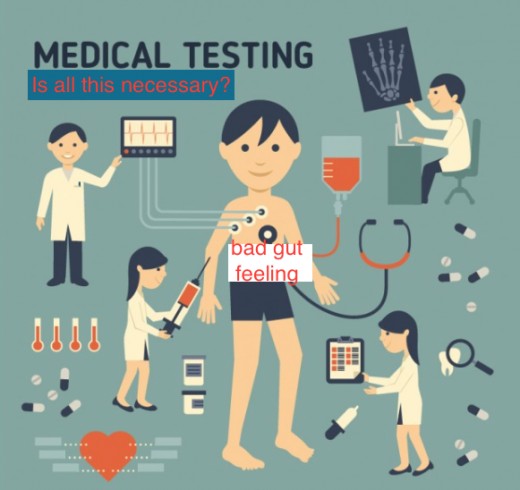
Tip #2- Listen Carefully and Make Sure the Healthcare Professional is Listening too
To emphasize the importance of tip #2 I would like to share a personal anecdote that occurred just 7 months ago. My stepfather had been eating at a local restaurant. He suddenly collapsed falling face down on the table as he was eating. My mother was terrified. I received a phone call from my brother that "Pop" was in the ER. The first thoughts that ran through my mind were not encouraging. Was it a stroke? An embolism? Heart attack? There was no news other than that he had collapsed and was taken to the hospital by ambulance. Speaking to my mother over the phone offered no comfort. She said "He just stopped eating and fell over onto the table." I assured her I would be at the hospital shortly, and hung up.
When I arrived at the E.R. I was pleasantly surprised to see my step dad sitting up and alert in a hospital bed. He was disheveled and looked tired, but he was completely lucid. I asked him how he felt. He said, "fine."
"What happened, Pop?"
"I'm not sure. One minute I was eating and talking with your mother, the next thing I know I was being wheeled out to an ambulance, and now here I am. I feel ok."
Something he said caught my ear; something about "eating and talking..." It isn't a good idea to talk and eat. It can lead to choking. It was those thoughts that triggered a memory. I've known my step dad since I was 5 years old, and I know something about him that was relevant to this incident; something even my mom didn't recall. My step dad often wheezes at the dinner table. He is a very tall man, 7 feet 2 inches if you can believe it. I've never seen him pass out or choke into unconsciousness, but I have seen him struggle from time to time at the dinner table as if food is stuck in his throat. He would cough and strain silently, but he always managed to regain control of himself. Sitting next to him in the E.R. I began to wonder if he just passed out. Could it be that simple? Time and a multitude of tests would tell.
Moments after I arrived a physician opened the curtain and came into our cubicle. He asked a few questions about the incident. His first comment was that tests needed to be done to rule out stroke, embolism, heart attack, etc. I shared my thoughts with him, told him about how my step dad was prone to choking and gasping while eating. I told him I had witnessed this many, many times. He said,
"Maybe he choked, but...it could've been a stroke that caused the choking."
Well...that didn't sound unreasonable. I didn't agree, but maybe he was right. I agreed that tests needed to be done.
My step dad was admitted to the hospital and for the following three days was subjected to 7 different tests including: x-ray, CAT scan, and blood work. He was examined by an E.R. doctor, a vascular surgeon, and a neurologist. I shared my story about my step dad's choking spells with all three doctors and the nursing staff. Finally, it was the neurologist that turned to me and fixed his eyes on me as I was telling the story about Pop choking when he eats. He thought about what I said, noted that ALL the tests had come back negative, and said,
"That actually makes sense." He then turned to my step dad and began telling him to make sure he chews his food 20 times before swallowing, and to eat slowly. He was all set to release Pop...or so we were led to believe.
The next morning, day 3, the RN entered the room and said that Pop was being given a consult to receive a bronchoscopy procedure "just to be sure" nothing was obstructing his airway. They'd done an X-ray and CAT scan to observe his airway. There was no obstruction. What good would it do to insert a lighted, 2 foot long, bronchoscope into the man's lungs, just to confirm something that had already been confirmed-twice? It was at this point that I hit the brakes. I consulted with a good friend who was a longtime RN, and her advice echoed my own thoughts. She said,
"Today's standard in the medical community seems to be to find out whatever is wrong with the patient even if it means dismantling him."
We stopped any further testing, and left after signing the leaving against medical advice form. My step dad has been fine ever since. It turns out that after 3 days of hospitalization, and 7 tests that cost several thousand dollars, Pop had simply choked on some food at a restaurant and passed out.
I want to end this section with this all too common caveat. When the staff told my step dad they needed to perform a bronchoscopy he just nodded his head and said, "Whatever you need to do..." You see he just trusted the staff and that's not always a bad thing. It was this time though! Medical professionals are trusted implicitly, sometimes blindly. "Why would they perform an unnecessary test on me?" It isn't out of malice. It could be to protect the hospital from litigation. It could be from a sense so pervasive in the medical world today that "we have to do everything possible." Also, there is a fear of "missing something." All these examples are very real reasons. Real as they may be, they are no guarantee of sound treatment. Receiving a bronchoscopy at that point in his treatment would've put my step dad at risk, needlessly. We have to stay on our toes. We have to listen very carefully and we have to make sure WE are being listened to.
Healthcare Professionals are Sometimes Overly Eager to Perform Testing
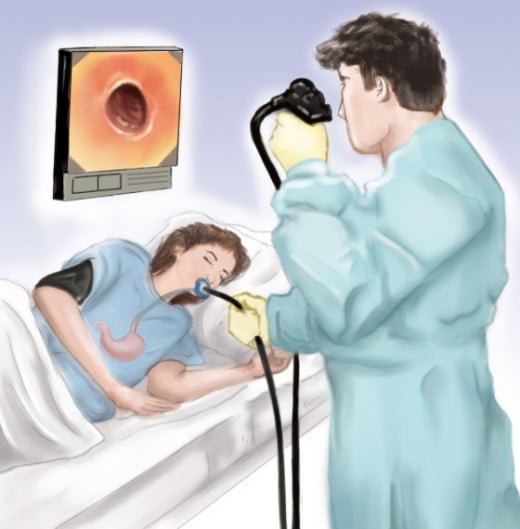
Tip #3 - Seek Counsel from a Friend or Family Member in the Healthcare Field
We all have a friend or family member who is a nurse, doctor, X-ray or Surg tech. We need to take advantage of the opportunity we have with these relationships by soliciting their opinions in medical matters. Medical professionals are always happy (well usually happy, but always willing) to offer their insights regarding healthcare options.
As much as these professionals in your corner are able to tell you what you should do, they can also tell you what not to do.
There are no guarantees in medicine and there are no crystal balls. Outcomes can be predicted, but not known. What you are looking for when soliciting opinions from friends in the field is guidance, shepherding, sound advice, and inside information. Obtaining advice from people in the field is akin to the most reliable form of marketing- word of mouth.
For all the years I've been in this field I've never gotten use to the way people, patients and staff alike, talk about "routine" tests. People speak so casually about procedures that, though performed in large numbers, are nonetheless invasive and require an anesthetic to be administered. This means risk, and if the risk is genuinely needed then by all means move forward. However, if it isn't needed, if you even suspect it isn't needed...hit the brakes. Reassess the situation. Slow down and make sure you're getting the treatment that is right for you, not just a matter of "routine."
Participate in a Poll?
Have you Ever Recieved Medical Tests you Later Realized Were not Needed?
The Difference Between "Major" and "Minor" Surgery
Minor Surgery = when it happens to someone else
Major Surgery = when it happens to ME
Choosing a Surgeon
- Choosing a Surgeon, Simplified
A 2009 study estimated the average U.S. citizen to have 9.2 surgeries in their lifetime. Any one of them could alter or end a life. The importance of your choice for a surgeon cannot be overstated.
Abridged List of Risks and Benefits
Procedure
| Risks
| benefits
|
|---|---|---|
Colonoscopy
| perforation of bowel/anesthetic effects
| discovery of cancerous polyps
|
Bronchoscopy
| pneumothorax/anesthetic effects
| discovery of lesions/obstructions
|
Laparoscopy
| injury to internal organs due to trocar placement/surgical herniation/anesthetic effects
| surgical interventions/direct visualization of internal organs
|
Surgical interventions are performed under optimal conditions with well trained personnel. Risks are indeed real, but are also minimal.
© 2018 Leland Johnson



